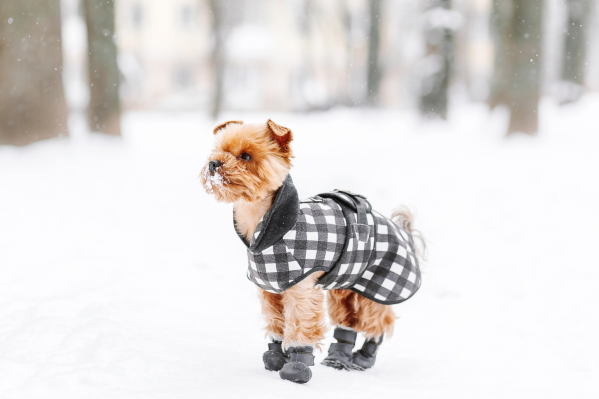When I was young(er), I had a dog named Piccolo who was part chihuahua and part something else — these were the days before dog DNA tests became the rage. He was tiny and he trembled near constantly. My dear Piccolo shivered morning, noon, and night, no matter the weather. We lived in New York, where the summers were hot and the winters were cold. Too cold for Piccolo at any rate. We used to shudder to bring the poor pup outside when the temperature came remotely close to freezing.
It wasn't until we found the perfect winter coat — not too big and thoroughly insulated — that the dog found any joy in being outside for half the year. The best dog coats can really make a difference in your life, which is why we've compiled this list, detailing the different types of dog coats and curating some of the best of them — for any shape, style, or climate.
Does Your Dog Need A Winter Coat?
While there are a few overarching factors that determine whether your dog should wear a coat, much of this decision should made by someone who sees and interacts with your dog regularly: you! Watch your dog's reaction to the weather. Here are a few tell-tale signs your dog is cold and may need some extra padding:
They start shivering soon after going outside
They slow down, sometimes refusing to move
They keep picking up their paws or licking them
They appear anxious or start whining
They keep searching for warm places to rest
If you're still unsure whether your pup needs a coat, there are some more universal factors that should help you determine it:
What's Your Dog's Hair Length?
When it comes to keeping warm, certain dogs don't need much help. Does your pup have a double coat? You can probably tell by looking and you can certainly tell by touching. A double coat consists of a dense undercoat of short hair, which you can feel underneath the top coat of longer hair or "guard hairs." If your pup looks like a fluffball, they probably have both. Here are a few examples of double coat dog breeds:
Akita
Alaskan Husky
Australian Shepherd
Bernese Mountain Dog
Golden Retriever
Newfoundland
Pomeranian
Shiba Inu
Siberian Husky
Dogs with double coats can actually overheat if you layer on too much, as their undercoat is already designed to keep them warm in the winter. If you're considering buying a dog coat for a pup who has a lot of hair, pay attention to the fabric, coverage, and insulation of the coat — and, of course, their reaction to it.
Dogs with shorter hair will generally appreciate the extra warmth a dog coat will provide as they don't have the same protections. But, of course, there are other factors to consider:
Your Dog's Weight
Some of the bigger pups we mentioned above, like huskies or Bernese mountain dogs, are bred to survive in frigid conditions. Other dog breeds, mainly small and toy, weren't born with the same built-in insulation and will require a little extra padding to keep them warm in the cold.
Medium- or large-sized dogs with short hair could also stand to benefit from another layer, especially when the conditions are a bit more intense. If your pup is larger but is thin or underweight, you may want to consider a dog coat option.
Your Dog's Age & Health
Older dogs, whether they are very hairy or not, will have different needs — especially when it comes to cold. A coat helps protect them from the elements and keeps joints warm, which is especially good for arthritis, which is prevalent in older (and larger) pups.
The same goes for dogs who are sickly or prone to getting sick. Adding an extra layer of warmth and protection won't go astray.
Your Climate
Where you live will certainly have an impact on whether your pup needs another layer (and what kind of layers too). If you spend most of the year in freezing temperatures with a dog breed not built for it, you're going to want something insulated. If it rains constantly where you live, you're going to need something water-resistant. Generally speaking, anything 45°F or below is a good cutoff to start dressing your pup.
If it's humid and never below 60 degrees, you're probably just fine without one. But, if your pup demonstrates any of the above signs of being too cold, don't hesitate to add an extra layer. Dogs react similarly to humans when it comes to the cold, so consider how you interact with the temperature and make a judgment call from there.
Now that we've gone through the main factors that determine whether your pup needs a coat, we can go through some different types with awesome options for each. These categories aren't necessarily mutually exclusive; some reversible dog coats may also have reflective detailing, etc. The grouping below highlights the coat's main qualities, and everything else is just an added perk!
Best Overall Dog Coat
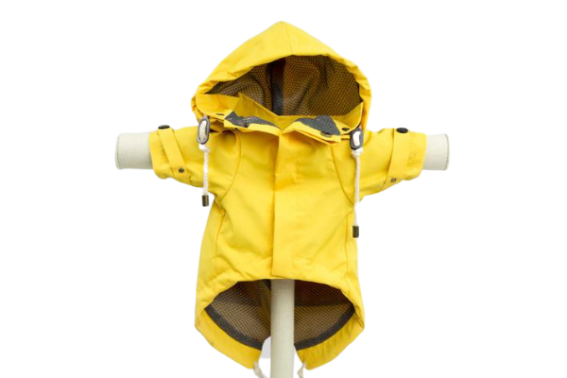
Max-Bone Talon Raincoat$65
This water-repellent dog coat snaps under your dog's belly and has a removable hood, mesh lining, and two small pockets. Staying dry has never looked more stylish.
Best Budget Winter Dog Coat
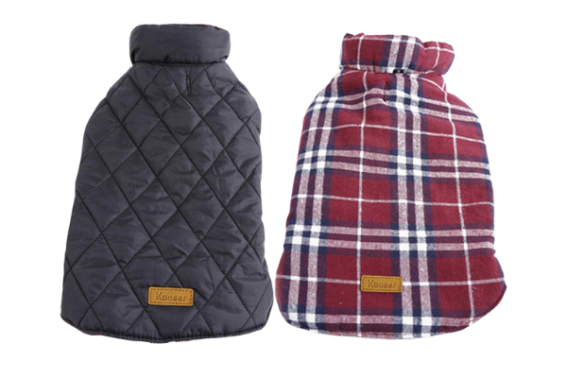
Kuoser Reversible Windproof Waterproof Vest Jacket$17+
Size Range: XS-XXXL
Coat Features: Reversible; one side is water-resistant; other side has fleece lining for warmth; hook and loop closure; windproof.
Best Waterproof Winter Dog Coats
For dog owners who live in climates that get a lot of rain, a water-resistant coat is a must — otherwise you'd be making your pup a lot colder if you keep a wet coat on. These coat types are also good for dogs that live by the water... or even ones who always end up making a big mess no matter where they go.
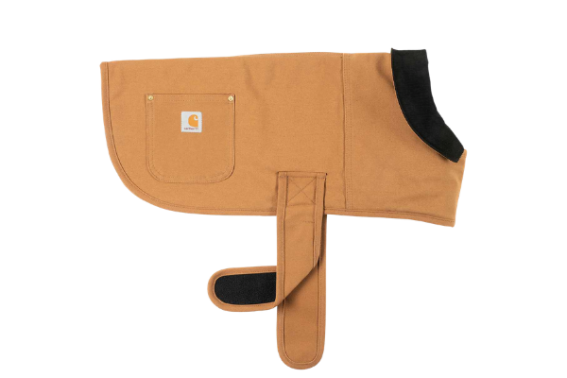
Carhartt Chore Dog Coat$40+
Size Range: S-XL
Coat Features: 100% ring-spun cotton duck with water-repellent coating; quilted nylon lining for warmth; corduroy-trimmed collar; two pockets; fully-adjustable hook and loop neck and chest tabs.
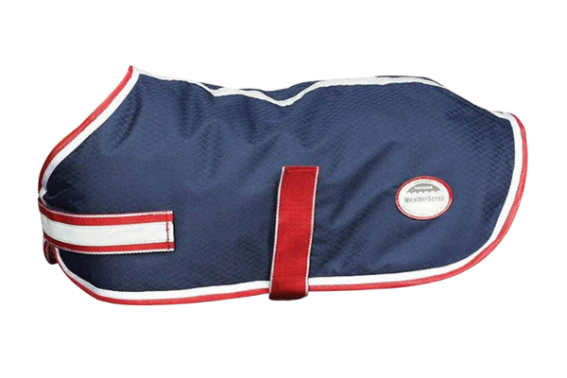
WeatherBeeta Parka 1200D Deluxe Dog Coat$45
Size Range: 10"-32"
Coat Features: 1200D denier outer shell for weather resistance and breathability; 220g of fill for warmth; full wrap chest and belly closure; large collar for leash hole; reflective strips for low-light visibility.
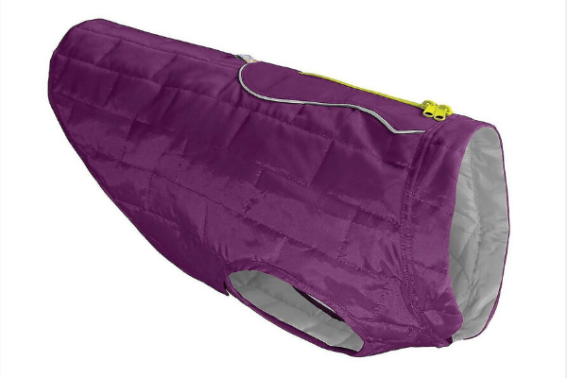
Kurgo Reversible Reflective Winter Coat For Dogs$40
Size Range: XS-XL
Coat Features: Reversible; water-resistant; two-way zipper to access harness and collar; microtomic ripstop material for durability; polytech fill for warmth; two-side adjustment points with hook and loop material; reflective accents for low-light visibility.
Best Reversible Winter Dog Coats
For pups who live in changeable climates with true seasons, a reversible dog coat makes a lot of sense. With two sides that provide different levels of warmth, dual-climate reversible coats mean you don't have to dig in your dog's closet the second the weather changes. Often, at least one side of these coats is water-resistant, combining the best of both worlds.
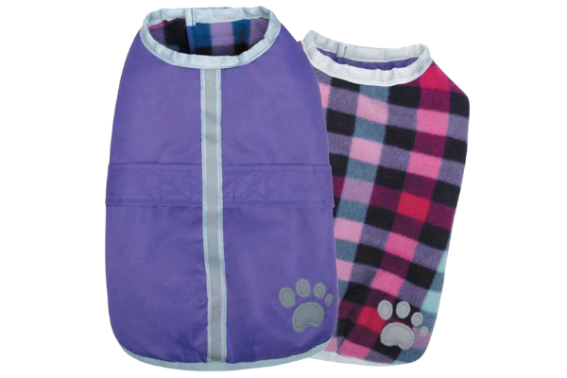
Zack & Zoey Polyester Nor'easter Dog Blanket Coat$24+
Size Range: XXS-XXL
Coat Features: Reversible; one side has water-resistant shell; other side has comfy fleece for warmth; velcro closures for adjustable fit; reflective stripe for low-light visibility.
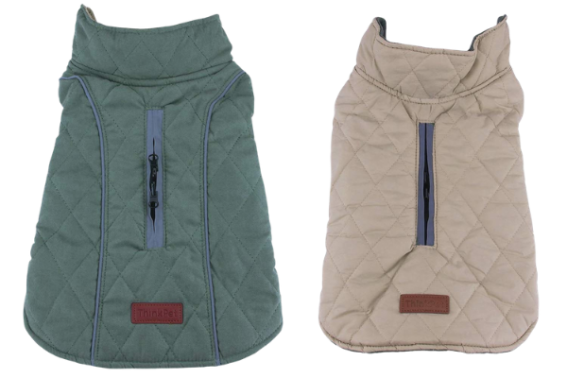
ThinkPet Warm Reversible Dog Coat$23+
Size Range: XS-XXXXL
Coat Features: Reversible; thick inner padded layer for warmth and comfort; belly coverage; elastic hook and loop fastener; zipper for any harness or collar type; reflective piping for low-light visibility.
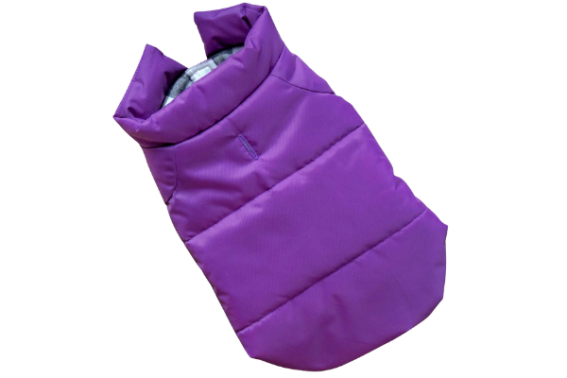
DJANGO Puffer Dog Jacket$48
Size Range: XS-L
Coat Features: Reversible; insulated for warmth; lightweight for movement; windproof; water-resistant; velcro closure; structured leash opening.
Best Reflective Winter Dog Coats
For people who live in less dense populations or who just really like to walk their dogs at night, reflective dog coats are a great way to make sure you stay safe. These designs, which can be either entirely or partially reflective, reflect light as you walk in dim conditions, which is especially important for road safety.
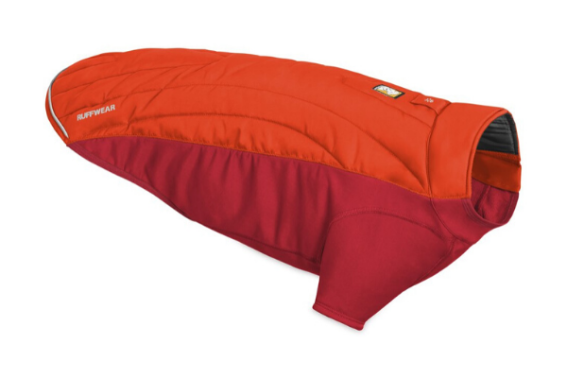
RUFFWEAR Powder Hound Jacket$90
Size Range: XXS-XL
Coat Features: Hybrid insulation for warmth; shell fabric for weather resistance; sleeved style for core heat retention; reflective trim for low-light visibility.
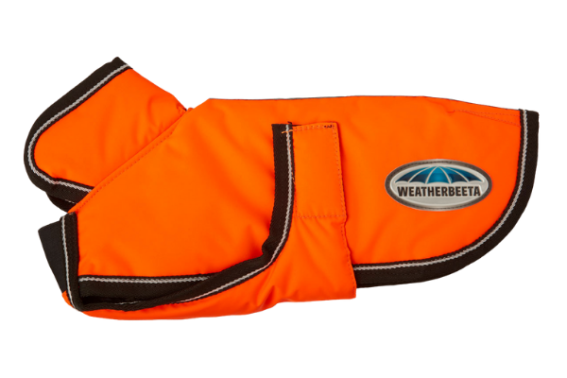
WeatherBeeta Reflective Parka$47
Size Range: 12"-32"
Coat Features: 300 denier outer shell for weather resistance and breathability; 220g polyfill for warmth; full wrap chest and belly wrap; large collar with harness hole; reflective strips for low-light visibility.
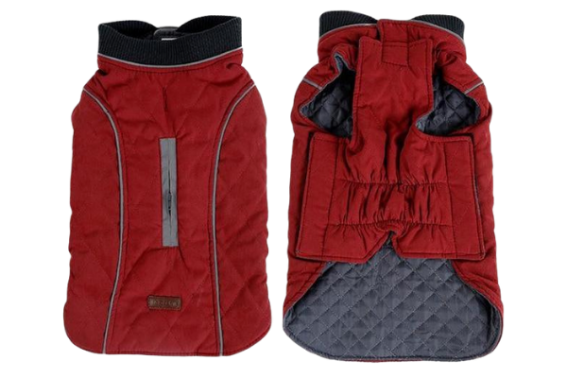
Think Of The Floofs "Cool Weather Canine" Reflective Dog Coat$20
Size Range: XS-XXXL
Coat Features: Quilted stitching for warmth; stretchy collar and body for breathability; collar with harness or leash hole; velcro attachments; reflective trim for low-light visibility.
Best Full Coverage Winter Dog Coats
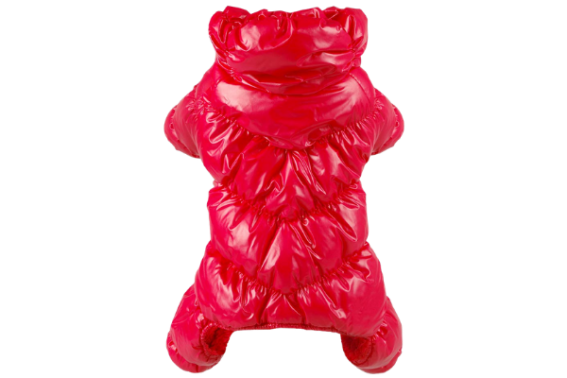
PET ARTIST Winter Puppy Dog Coat$21+
Size Range: S-XL
Coat Features: Splashproof; thick fleece fabric for warmth; windproof and snow-resistant; button closure with elastic waist; breathable four-leg style.
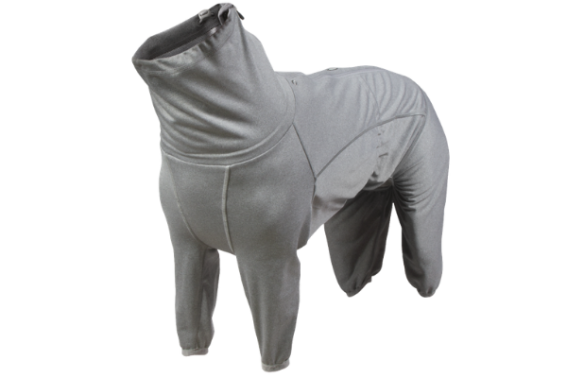
Hurtta Body Warmer Dog Bodysuit$63+
Size Range: XS-L
Coat Features: Heat reflective foil liner; breathable fabric ideal for aging or injured dogs; reflectors on the seams for low-light visibility.
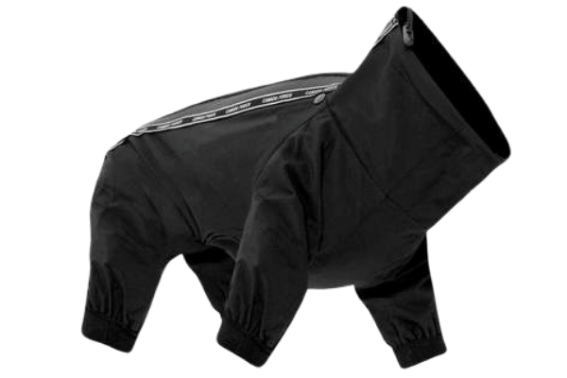
Canada Pooch Dog Slush Suit$50+
Size Range: 10-26
Coat Features: Water-resistant exterior; side zipper closure; adjustable neck for the perfect fit; full body protection.
